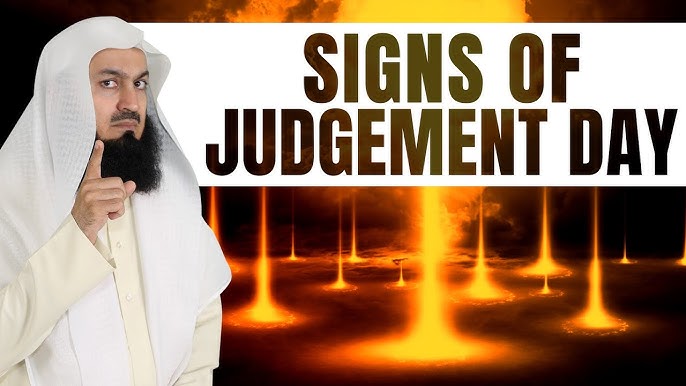
Judgment Day signs in Islam holds profound significance in Islam, representing the day when all beings will be held accountable for their deeds. This category delves into the signs and events foretold in the Quran and Hadith that signal the arrival of this ultimate day. From minor signs, like the moral decline of society, to major cosmic upheavals, Islamic teachings offer a roadmap of what awaits humanity. By exploring each sign, readers can better understand the journey of life, its purpose, and the importance of preparing for the hereafter according to Islamic principles.
Introduction: What is Judgment Day in Islam?
In Islam, Judgment Day also known as the Day of Resurrection or “Qiyamah” is a pivotal concept that represents the culmination of earthly life and the beginning of the afterlife. According to Islamic belief, this day signifies the final judgment when every individual will be held accountable for their deeds. The concept is rooted in the Quran and the Hadith, with numerous signs foretelling the approach of this ultimate day.
Understanding the Judgment Day signs in Islam helps Muslims reflect on their actions, preparing themselves spiritually and ethically for what lies beyond. In this article, we’ll explore the major and minor signs of Judgment Day in Islam, as described in the sacred texts.

What Are the Minor Judgment Day signs in Islam?
Islamic teachings categorize the signs of Judgment Day into two groups: minor and major. Minor signs are events and changes that gradually unfold over time, often observed in societal behaviors and global transformations. Here are some notable minor signs:
- Increase in Dishonesty and Lack of Trustworthiness
According to Hadith literature, dishonesty and lack of trust will become prevalent before Judgment Day. The Prophet Muhammad (PBUH) stated, “When honesty is lost, then wait for the Hour” (Sahih al-Bukhari). This minor sign serves as a reminder of the importance of honesty and trust in Islam. - Prevalence of Ignorance and Lack of Knowledge
One of the minor signs of Judgment Day in Islam is the decline in knowledge and an increase in ignorance. This points to a loss of spiritual guidance and ethical values, which can impact society negatively. - Widespread Immorality and Corruption
The increase in sinful acts, including immorality and corruption, is highlighted in various Hadiths. This serves as a reminder to avoid actions that go against Islamic teachings, as they are signs of societal decline and moral decay. - People Competing in Constructing Tall Buildings
Another minor sign mentioned in Islamic texts is that people will compete to construct tall buildings. This reflects the materialism and pride that may divert people from spirituality and humbleness. - Increase in Natural Disasters and Calamities
Natural disasters like earthquakes, famines, and other calamities are also among the minor signs. These serve as reminders of the transient nature of life and the need for repentance.
Each of these minor Judgment Day signs in Islam offers Muslims a chance to reflect on their actions, encouraging them to lead a more ethical and spiritual life.
Major Judgment Day signs in Islam: The Final Events Before the Hour
While minor signs happen gradually, the major signs of Judgment Day in Islam will occur closer to the final hour and are marked by more dramatic, supernatural events. These include:
- Appearance of Dajjal (The False Messiah)
The emergence of Dajjal, often described as the “Antichrist” or “False Messiah,” is one of the most significant major signs. Dajjal will deceive many with his powers and perform miracles to mislead people. Muslims are encouraged to stay firm in their faith and recognize this test. - The Return of Prophet Isa (Jesus)
Islamic teachings mention that Prophet Isa (Jesus) will return to defeat Dajjal and restore justice. His second coming is seen as a vital event among the major signs of Judgment Day in Islam, symbolizing the victory of truth and righteousness. - The Emergence of Gog and Magog (Ya’juj and Ma’juj)
Gog and Magog, also known as Ya’juj and Ma’juj, are two destructive forces mentioned in the Quran and Hadith. Their release will cause widespread havoc and chaos, testing the faith of believers worldwide. - The Rising of the Sun from the West
Another striking major sign is the sun rising from the west, symbolizing a complete reversal of natural order. This phenomenon will mark a point of no return, emphasizing the urgency for repentance before it’s too late. - The Smoke (Dukhan) and Beast of the Earth
Among the Judgment Day signs in Islam, a smoke (dukhan) will fill the sky, causing distress among people, followed by the appearance of a “Beast of the Earth.” This creature will speak to people, signaling the final moments of earthly life.
Lessons and Warnings from the Judgment Day signs in Islam
The signs of Judgment Day in Islam are not just prophetic warnings but are also moral and spiritual lessons for believers. Each sign encourages reflection on values like honesty, humility, kindness, and piety. They are reminders to lead a life that aligns with Islamic teachings, promoting good deeds, charity, and compassion.
Muslims are reminded that life is temporary and that worldly pleasures are fleeting. The Judgment Day signs in Islam underscore the importance of focusing on eternal rewards, urging individuals to prioritize faith over materialism.
How Muslims Can Prepare for Judgment Day
Preparing for Judgment Day is a central aspect of Islamic life, and the signs of the end times serve as calls for spiritual readiness. Here are some ways Muslims can prepare, based on Islamic teachings:
- Strengthening Faith and Belief (Iman)
Developing strong faith is essential for facing the challenges that may arise as the signs unfold. Reading and understanding the Quran, praying regularly, and seeking knowledge all help to strengthen belief. - Repentance and Seeking Forgiveness
Islam emphasizes the importance of repentance as a means of purifying the soul. Regularly asking for forgiveness and seeking to rectify mistakes is a powerful way to prepare for the afterlife. - Engaging in Good Deeds and Charity
Acts of kindness, charity, and service to others are highly encouraged. In Islam, these actions help cleanse one’s record, which will be evaluated on Judgment Day. - Avoiding Sinful Actions and Temptations
One of the best ways to prepare for Judgment Day is to avoid actions that go against Islamic principles. Islam encourages believers to be mindful of their behavior and to guard against actions that could negatively impact their afterlife. - Building a Strong Community
Belonging to a community of believers can be a source of strength. By surrounding oneself with individuals who share the same values, Muslims can find encouragement to stay on the right path, especially during challenging times.

Conclusion: Reflecting on Judgment Day signs in Islam
The Judgment Day signs in Islam serve as powerful reminders for Muslims about the inevitability of the Day of Resurrection and the transient nature of life. Recognizing these signs and understanding their meanings helps Muslims stay mindful of their actions, encouraging them to lead lives filled with compassion, honesty, and piety.
The signs of Judgment Day offer profound lessons for believers, urging them to reflect on their purpose and prepare for the afterlife. By focusing on these values and staying firm in faith, Muslims can find comfort and direction as they prepare for the final day. In the end, these signs encourage spiritual growth, offering guidance and hope for those who seek a life aligned with Islamic principles.
 Colors
Colors 
 Support
Support 





